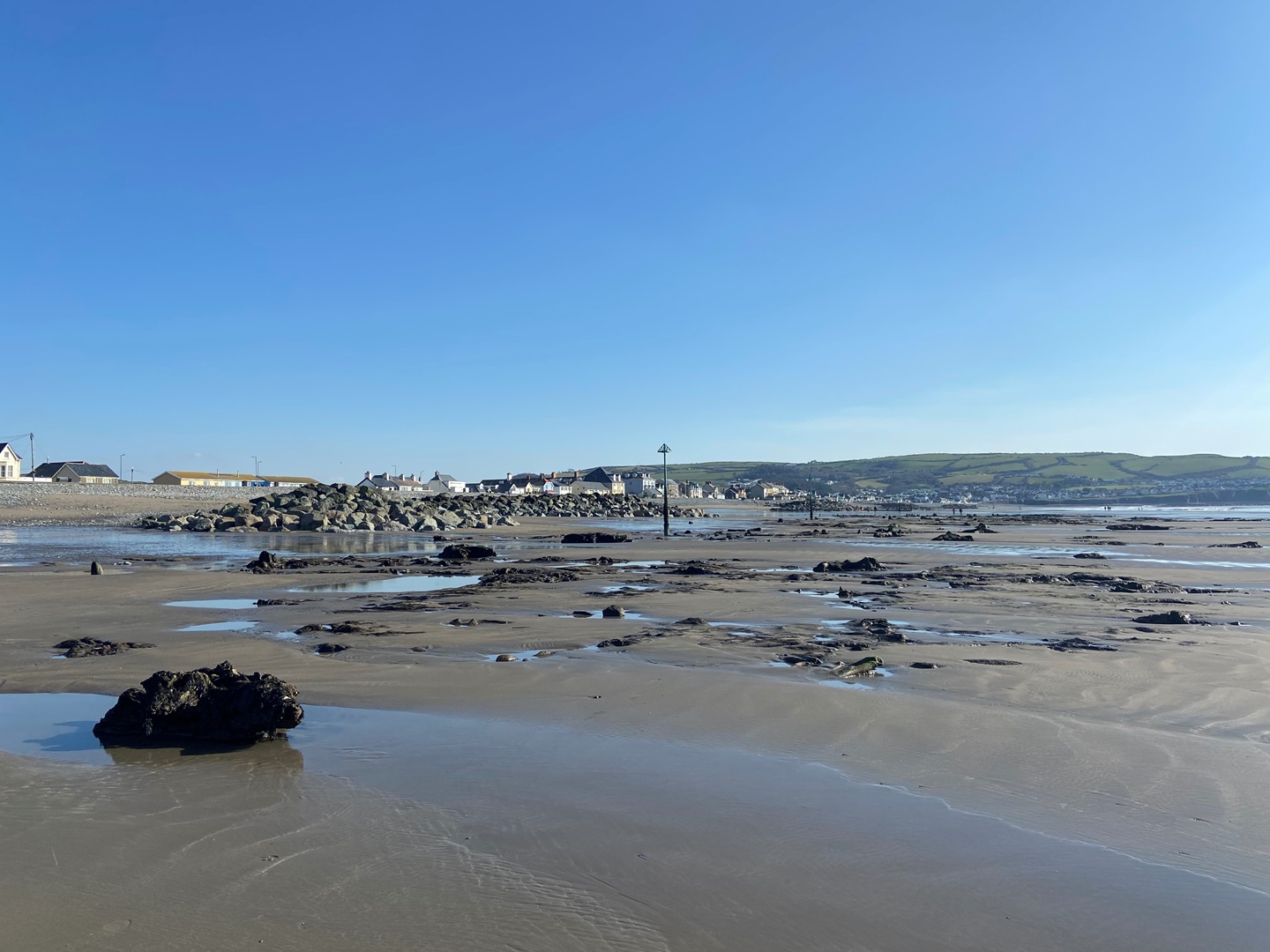New projects to support UK coastal community communities

Borth
12 July 2024
Aberystwyth academics will play a key role in new efforts to improve the resilience of UK coasts.
A new four year-long project led by experts from Aberystwyth and Greenwich universities will work with coastal communities in mid and north Wales, the Humber Estuary in England, Lough Foyle in Northern Ireland and the Firth of Clyde in Scotland with the aim of building their resilience.
In Wales, the research will focus on the coastlines of north Ceredigion and Gwynedd, looking at how climate change and sea level rise interact as well as nature conservation, rural challenges, economic development, questions of language and culture, and emotional wellbeing.
The lessons learned from the £2.8 million ‘Transformative Research Actions for Resilient Coastal Communities’ (TRACC) project will be shared through a new UK-wide ‘Resilience Assembly’.
TRACC is jointly led by Professor Tim Acott from the University of Greenwich and Professor Jasper Kenter from Aberystwyth University, with Dr Hywel Griffiths also contributing to the research in Wales.
Jasper Kenter, Professorial Research Fellow in Ecological Economics at Aberystwyth University’s Business School, said:
“So far, decision makers and researchers have often tackled challenges in isolation from each other. What is unique about the TRACC project is that we will cut across environmental, cultural, economic and social issues to get to the heart of community resilience. Coastal change is not just happening but also accelerating, and resilience means being able to adapt to that change in a sustainable way. This requires new and creative thinking, which we will do through many different innovative approaches, such as artistic performance, citizen assemblies, and integrated assessments of people’s and nature’s diverse values.”
The project will bring together people from all walks of life to design new ways of tackling coastal challenges and help build more sustainable and resilient communities.
Tim Acott, Professor in Human Geography at the University of Greenwich, added:
“Coastal communities in the UK are faced with many challenges to their resilience, from sea-level rise, flooding, and pollution, to youth emigration, ageing populations, loss of cultural heritage, and unaffordable housing. Addressing these in an inclusive, holistic, and sustainable way requires a transformation of the way research and governance work and interact.”
The TRACC project is part of the broader UKRI and Defra-funded Resilient Coastal Communities and Seas programme.
The programme funds four large strategic projects, including ones led by teams at the University of Essex, Heriot-Watt University, Queen Mary University of London, the TRACC project led by Greenwich and Aberystwyth Universities, and the COAST-R Network Plus led by Professor Briony McDonagh at the University of Hull.
Professor Sarah Davies from the Department of Geography and Earth Sciences at Aberystwyth University will contribute to the £2 million COAST-R Network alongside Dr Jen Wolowic from the University’s Dialogue Centre. They will be working with teams from the Universities of Hull, Glasgow, Leeds, Liverpool and Southampton as well as coastal and marine partners and communities.
One of the network’s key objectives is to share learning and best practice across sectors and disciplines to improve coastal and marine resilience. Academics will work with communities and other partners to identify and respond to priority needs using a Flexible Fund.
Professor Sarah Davies, Head of the Department of Geography and Earth Sciences at Aberystwyth University, said:
“The impacts of climate change and weather extremes exacerbate societal challenges faced by coastal communities. It is important that we work together collaboratively and share best practice across organisations to ensure that experience and knowledge of local communities are at the heart of decision making and planning for the future”
The new programme is part of the UKRI’s Strategy “Transforming Tomorrow Together”, which will see a £24.3 million boost to research projects that improve the UK’s environmental resilience.
The programme is jointly funded by UKRI, through Creating Opportunities, Improving Outcomes, alongside the Arts and Humanities Research Council (AHRC), Economic and Social Research Council (ESRC), National Environment Research Council (NERC) and the UK Government Department for Environment, Food and Rural Affairs (Defra) through the Natural Capital and Ecosystem Assessment programme.
Creating Opportunities, Improving Outcomes is one of UKRI’s strategic themes. Its aim is to improve outcomes for people and places across the UK by identifying solutions that promote economic and social prosperity.



